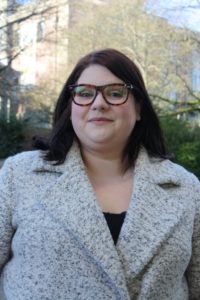The British Columbia government recently announced the creation of a mental-health service for BC students that will feature online and telephone counselling services 24 hours a day, seven days a week. The service will launch this spring, and the government has contracted human resources services and technology company Morneau Shepell, who are headquartered in Toronto, to create and operate the service. The three-year contract has a $1.5-million-per-year budget.
Camosun College Student Society student wellness and access director Eleanor Vannan sees the need for a 24-hour mental-health service for students.
“I am the campaigns coordinator for the BC Federation of Students [BCFS], and I got involved with that when I became Camosun’s wellness director,” says Vannan. “I am a student with a learning disability but I have also had struggles with anxiety and depression, which I’m quite open about, because my personal opinion is that it is more common than anyone thinks. So, the BC Federation of Students knew that I worked with mental-health initiatives, that it was something I am very passionate about.”

The Ministry of Advanced Education, Skills and Training got in touch with the BCFS, then Vannan; Vannan says that minister of advanced education, skills and training Melanie Mark and minister of mental health and addictions Judy Darcy were both very enthusiastic about the idea.
“It is going to be a 24-hour help line where post-secondary students will be able to seek support,” says Vannan, who was on the procurement team who decided on the service provider. “It will involve both referrals to services and also the chance just to have an immediate conversation with someone. Both Judy Darcy and minister Melanie Mark are so very aware that this province has a mental-health crisis going on right now, and with some of the issues going on around affordability, the cost of living, the housing crisis.”
Mark is proud to be part of the decision to create the help line.
“As soon as I became minister back in 2011, I went on the road and visited all 25 public post-secondary institutions, and during that time students were very upfront with me about some of the challenges that they are facing on campus, what kind of action they wanted to have taken,” says Mark. “Things get off the ground working together. And something that I am also very proud of is the 24/7 help line is free, and that makes it accessible for the students that are struggling.”
Camosun director of student affairs Evan Hilchey was involved in the conversations with Vannan and Mark, and he believes that there has been a gap in services in mental health.
“I think the first area is providing 24-hour service, and community support services,” says Hilchey. “Providing an opportunity and way in which students can reach out for support 24/7 really increases the access to support for all students at post-secondary. The hope is, clearly, that students will access those supports and find those supports beneficial to them.”
Vannan says that when students are struggling, a great way to cope is through others with similar struggles.
“There are people who want to support you, but there are also people who are going through the same thing,” says Vannan. “So, there is going to be camaraderie with them, a common ground.”
Mark says that the service will have several different options for help, geared toward students in today’s society.
“There is going to be a chat option, a telephone option, and a text option,” says Mark, “because we want to make sure that we are available to the students of the 21st century. Picking up the phone and reaching out—that is what is going to save lives.”
Correction: We originally reported that Eleanor Vannan got in touch with the Ministry of Advanced Education, Skills and Training about the idea for this program; in fact, the ministry got in touch with the British Columbia Federation of Students, then Vannan. We apologize for the mistake.
